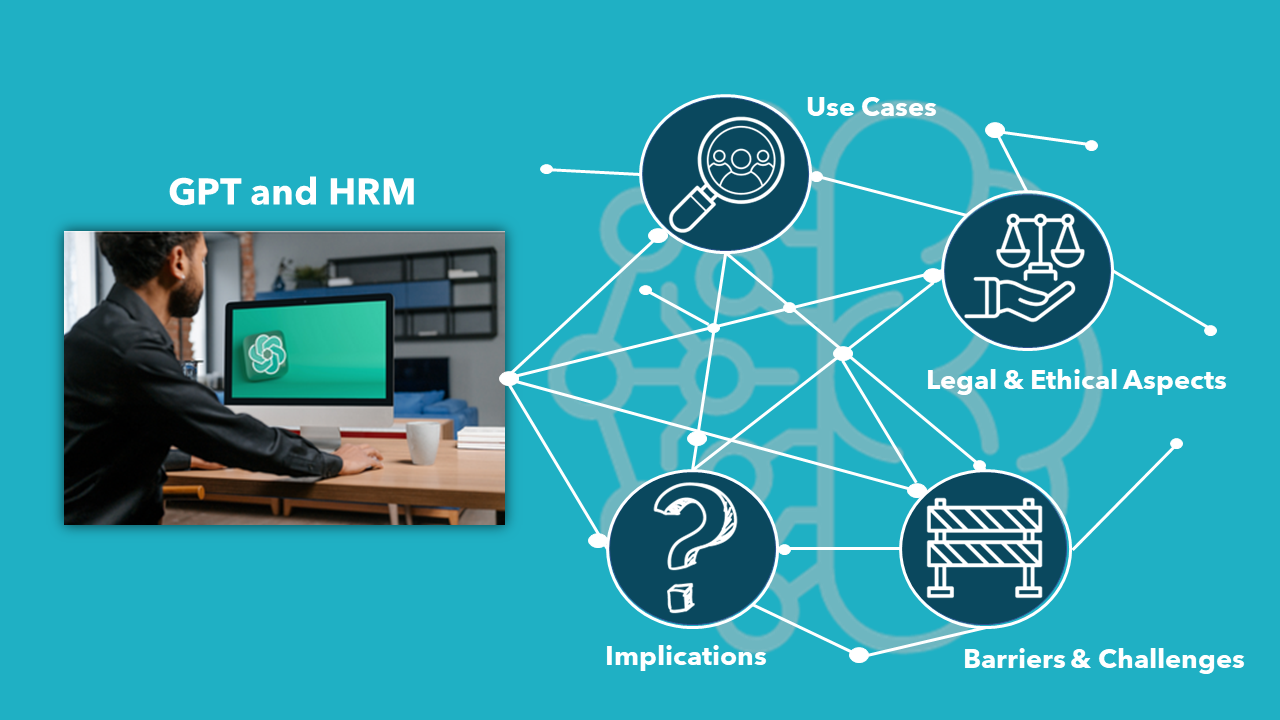Exploring the Potential of GPT in HRM
Since the public release of ChatGPT the discussion about its implications has gained considerable momentum. But what does that mean for HRM?

Topic
AI has already left its mark in HR. With the appearance of large language models (LLMs) and especially since the release of ChatGPT by OpenAI, new ideas for use cases have emerged. This research aims at exploring viable use cases for GPT-based tools in HRM, as well as the barriers, challenges, and implications faced by HR practitioners, along with ethical, legal, and governance considerations.
Relevance
The avaiability and in many cases easy access to tools powered by LLMs such as GPT changes the HRM landscape. These tools have the potential to support in different tasks and can serve as powerful augmenting resources for HR practitioners. However, it is essential to identify the appropriate use cases within HRM and be aware of the potential barriers, challenges, and implications involved. Additionally, discussions surrounding AI ethics, regulations, and governance have gained momentum, emphasizing the importance of accurately assessing risks in the decision-making process.
Results
Findings indicate that GPT-based tools have not yet been widely adopted in HR. It seems that creative tasks in recruiting and employer branding are currently the most promising use cases besides low level administrative tasks. Major barriers and challenges include data protection, technical limitations, finding adequate use cases, low digital maturity, and trust issues. Generally, AI has positive impacts on HR and many respondents have started to adapt the skills sought in HR candidates. Ethical considerations beyond compliance are not paramount and legal considerations concern mostly data protection. There is not much orientation on ethical guidelines for governance purposes observable.
Implications for Practitioners
- Use Cases: GPT-based tools are viable in creative tasks for recruiting and employer branding where no personal data is involved.
- Digital Maturity: Contrary to popular believe, it is possible to take advantage of AI and also GPT-based tools even if HR activities are still largely paper-based.
- Positive Effects: Overcoming barriers and tackling challenges to introduce AI can have considerable advantages. Respondents refer to efficiency gains, better employee experience, and lower costs just to name a few.
- New Regulations: HR practitioners are recommended to involve themselves more in ethical and legal discussions before deploying AI and not just trust in third party providers. The complexity in these topics increases significantly and their involvement is essential to avoid damage to the organization.
Method
This research adopted a qualitative study design with semi-structured in-depth interviews as an appropriate explorative method. In total 16 people were interviewed in 14 distinct instances. Four of the respondents have a consulting or supporting role for HR departments while the others are mostly in leading or digitalizing HR roles. Before the interviews, an interview guide was deduced from relevant literature for orientation during the process. The transcribed data was subsequently thematically analyzed by deductive and inductive coding with MAXQDA to get to the relevant insights.
